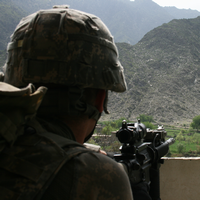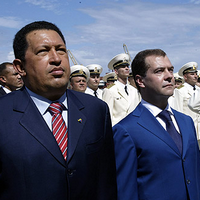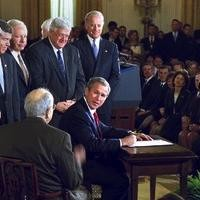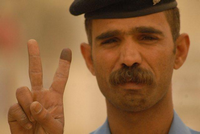
KUNAR PROVINCE, Afghanistan — Gunfire and rockets erupted on both sides of the American patrol the night of March 28 in Kunar province, along the Pakistani border in eastern Afghanistan. The ambush was one of at least two apparently coordinated attacks that struck U.S. Army forces operating from two small bases in the province’s main river valley. The rockets exploded harmlessly against the sides of the thickly armored American vehicles. And though the soldiers — from 2nd Battalion, 503rd Infantry Regiment, based in Italy — would later complain about the deafening noise they made, it was another weapon that troubled […]




